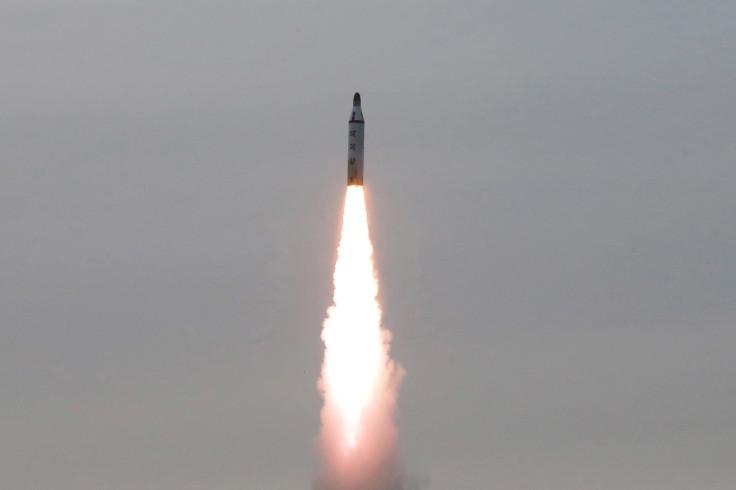North Korea Submarine Missile Test Condemned By UN Security Council; Obama Rejects Pyongyang’s Proposal

The United Nations Security Council on Sunday condemned North Korea's test-firing of a submarine-launched ballistic missile, calling it a "serious violation" of past resolutions aimed at restricting Pyongyang's nuclear ambitions. North Korea claimed Saturday that it conducted the missile test under Kim Jong Un's supervision.
The Security Council reportedly expressed concerns over Pyongyang's activities that are adding to its development of nuclear weapons delivery systems. North Korea said Saturday that the missile test, which came despite tough sanctions, had been a "great success" that provided "one more means for powerful nuclear attack," the KCNA reported.
"The members of the Security Council agreed that the Security Council would continue to closely monitor the situation and take further significant measures in line with the council's previously expressed determination," the council said, in a statement, according to Reuters. "The members of the Security Council emphasized that the DPRK's development and testing of new ballistic missile capabilities, even if launches are failures, is clearly prohibited by these resolutions."
Saturday's missile test is the latest in a string of recent demonstrations of military prowess by North Korea that began in January with Pyongyang's fourth nuclear test, followed by a long-range rocket launch in February.
U.S. President Barack Obama on Sunday reportedly dismissed North Korea's offer to halt nuclear tests if Washington ended its annual military exercises with South Korea, adding that the U.S. did not take the North's proposal seriously. North Korea’s state-run news agency KCNA had recently said that the South Korea-U.S. military drills were a challenge to Pyongyang’s dignity and an “open declaration of war.”
North Korea's Foreign Minister Ri Su-yong made the offer in a rare interview to the Associated Press Saturday.
“If we [Pyongyang and Seoul] continue on this path of confrontation, this will lead to very catastrophic results, not only for the two countries but for the whole entire world as well,” Ri said. “It is really crucial for the United States government to withdraw its hostile policy against the DPRK [Democratic People’s Republic of Korea] and as an expression of this stop the military exercises, war exercises, in the Korean Peninsula. Then we will respond likewise.”
© Copyright IBTimes 2025. All rights reserved.





















